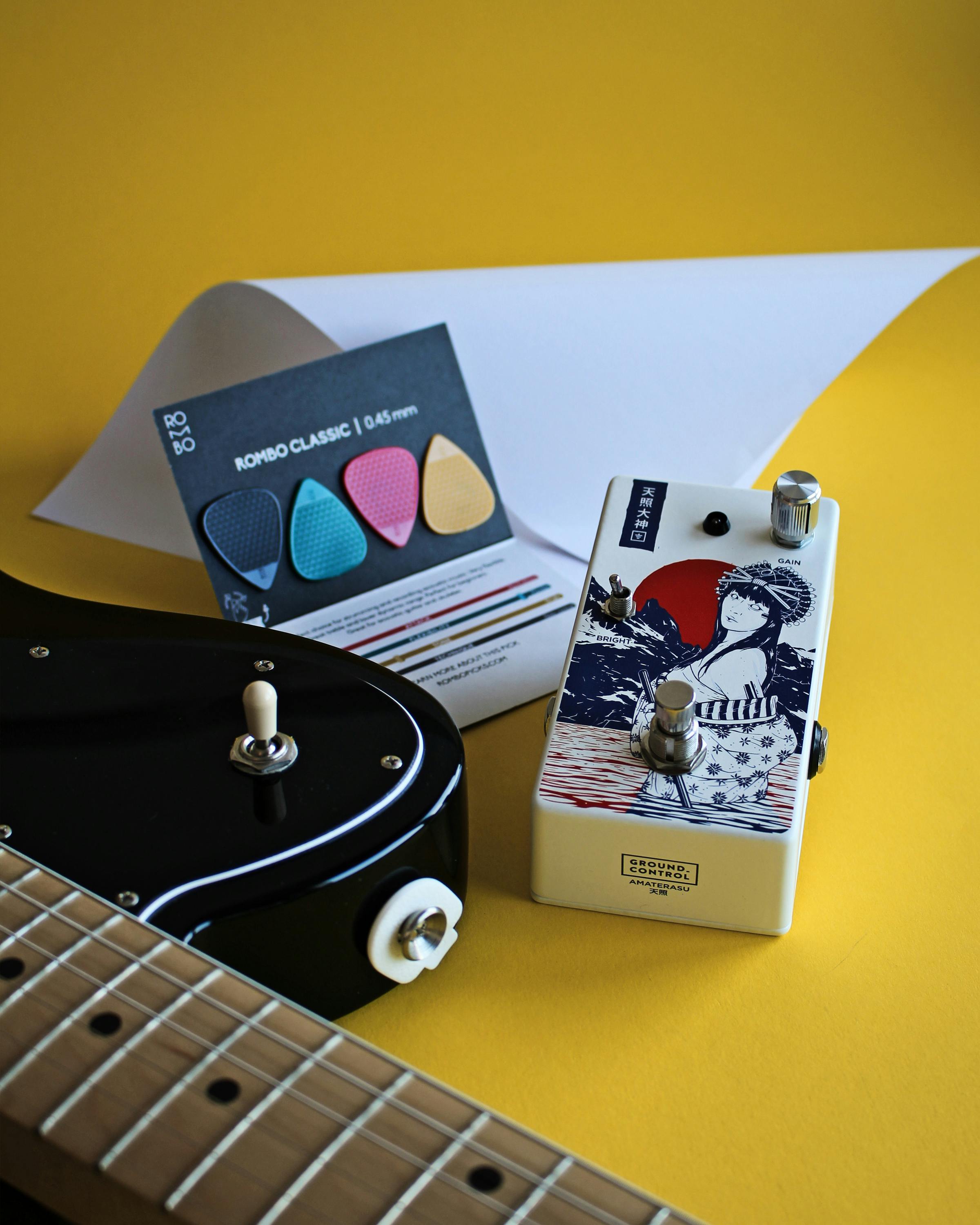Search Topic
Understanding the significance of tone in guitar playing
Tone is a crucial aspect of guitar playing that can greatly affect the overall sound and feel of your music. Understanding the significance of tone and how to manipulate it is essential for any serious guitarist. Tone refers to the quality and character of the sound produced by the guitar. It is influenced by various factors, including the type of guitar, the type of pickups, the amplifier, the effects pedals, and even the player’s technique. Each of these elements contributes to creating a unique tone that can greatly enhance or detract from your playing.

Different genres of music often require different tones. For example, a heavy metal guitarist may opt for a distorted and aggressive tone, while a jazz guitarist may prefer a clean and warm tone. It is important to consider the style of music you want to play and experiment with different tones to find what suits your style.
One way to manipulate tone is through the use of effects pedals. Effects pedals can alter the signal from the guitar, adding various effects such as distortion, delay, reverb, and modulation. Experimenting with different effects can help you achieve the desired tone for your playing style.
Another important factor in tone is the player’s technique. The way you pick or strum the strings, the force applied, and the position of your hand can all affect the sound produced. It is worth spending time refining your technique to achieve the desired tone.
It is also crucial to consider the role of the amplifier in shaping your guitar’s tone. Different amplifiers have different tonal characteristics, and finding the right one for your style is essential. Tube amplifiers, for example, are known for their warm and rich tones, while solid-state amplifiers offer a cleaner and more modern sound. Experimenting with different amplifiers can help you find the one that best complements your playing style.
Overall, understanding the significance of tone in guitar playing is crucial for any serious guitarist. By experimenting with different elements such as guitar type, pickups, effects pedals, amplifier, and technique, you can discover the unique tone that defines your playing style and enhances your musical expression.
Techniques for achieving different tones on the guitar
When it comes to achieving different tones on the guitar, there are several techniques that professional guitarists utilize. From adjusting your playing style to using different equipment, there are numerous ways to achieve the desired tone.
One technique is adjusting your playing style. By altering your picking technique or the pressure applied to the strings, you can create a brighter or softer tone. Experimenting with different dynamics, such as playing softly or aggressively, can also affect the overall tone. Additionally, incorporating techniques like vibrato and bending notes can add depth and character to your playing.
Another aspect to consider is the type of guitar you are using. Electric guitars offer a wide range of tonal possibilities due to their ability to be paired with various amplifiers and effects pedals. By experimenting with different combinations, you can achieve tones ranging from clean and crisp to distorted and heavy. On the other hand, acoustic guitars provide a more natural and organic tone. The type of wood used in the construction of the guitar can also impact the overall sound.
The choice of strings can also greatly influence the tone of your guitar. Depending on the gauge and material of the strings, you can achieve brighter or warmer tones. Lighter gauge strings are generally brighter and easier to bend, while heavier gauge strings tend to produce a fuller, more powerful sound.
Utilizing effects pedals and amplifiers can further shape your tone. Effects pedals such as overdrive, delay, and reverb can add depth and texture to your playing. Amplifiers provide the power and amplification necessary to project your desired tone. Experimenting with different settings and combinations of effects can lead to endless tonal possibilities.
Lastly, the way you set up your guitar can affect its overall tone. Adjusting the action, intonation, and pickup height can drastically change the way your guitar sounds. Seeking professional assistance in setting up your guitar can ensure optimal tonal quality.
In conclusion, achieving different tones on the guitar requires a combination of techniques, equipment, and experimentation. By adjusting your playing style, utilizing different guitars and strings, incorporating effects pedals and amplifiers, and properly setting up your instrument, you can achieve a wide range of tones to suit any musical style or preference.








